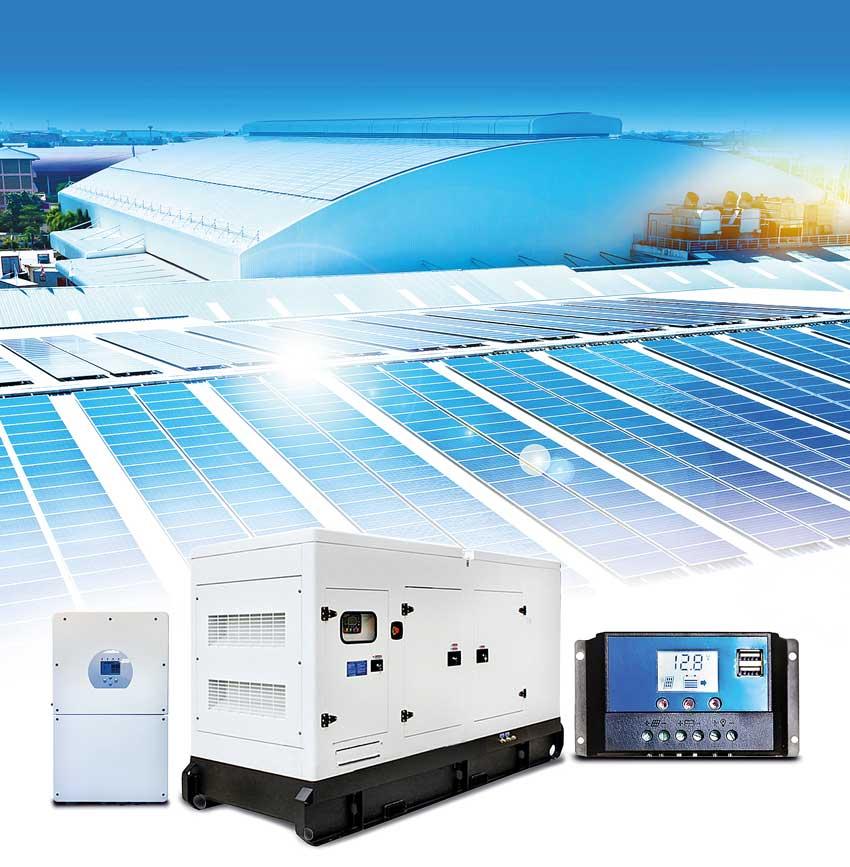26 Jul 2022 - {{hitsCtrl.values.hits}}

Renewable energy will have a key role to play going forward
As Sri Lanka grapples with the most challenging times ever witnessed in history, businesses are on the continuous lookout for a silver lining. Diversified conglomerate DIMO aims to provide just that by stepping up efforts to power the nation with solutions that would help businesses continue operations with minimal hindrance.
Speaking to Mirror Business recently, DIMO Executive Director Wijith Pushpawela shared insights on the initiatives taken by the entity in the local power sector, relevance of the solutions and way forward.
Following are the excerpts from the interview.
By Shabiya Ali Ahlam
Can you share in brief the initiatives taken by DIMO in the power sector?
In a nutshell, we actively improve power infrastructure in the country to facilitate smooth transmission and distribution of power.
|
DIMO Executive Director Wijith Pushpawela |
We have been representing Siemens Germany, a giant in the power infrastructure sector, for over seven decades in Sri Lanka. It has worked with us as a partner for several projects and with that, we have also been able to build our competencies.
We started participating in large-scale tenders with it in 2018, as a joint venture. We do the total logistics, civil constructions, electrical execution work, including the installation of equipment and it provides us with the equipment. That’s the business model that we have adopted with Siemens.
Since a microgrid system is a novel concept to Sri Lanka, could you explain it briefly?
A microgrid system is a decentralised group of electricity sources and loads that are connected synchronously to the main power grid. It runs on two modes: the off-grid mode, which supplies power to the loads through energy sources without the support of the grid and the on-grid mode, where the system stays synchronised with the grid and any excess power is fed to the grid.
Microgrids typically integrate renewables into the energy mix intelligently and seamlessly balance the variable output of renewable energy while enabling the system to seamlessly transfer from one source of generation to another, from on-grid to off-grid and from off-grid to on-grid.
So, the microgrid overcomes the transient nature of solar and wind energy through intelligently, accommodating energy storage. All this works with no human intervention. The system helps tap into other resources, including grid, diesel generators or battery storage when the renewable energy source is unavailable.
Seamless power flow is essential in production facilities, where it is critical for the continuous operation of machinery without any downtime. The microgrid helps in this regard.
Has this concept already been tested in Sri Lanka and what are the other countries already practicing this as a renewable energy solution?
We currently have a system running at the University of Moratuwa. The completed system consists of a 375kW of solar PV, 418kWh of battery storage and a 770kVA backup diesel generator. With this project, the University of Moratuwa now can generate its power requirement within its premises, without depending on the national power supply.
Across the world, microgrids are quite popular. The systems have been successfully implemented in smart cities in the USA, Australia and other developed regions, in rural areas and in isolated electrification around
the world.
What is the product offering in this regard?
We have partnered with German microgrid expert DHYBRID, a leading provider of renewable energy solutions with individualised control systems for hybrid energy supply. It is also a pioneer in this segment. The energy solutions combine the power from multiple renewable energy sources, including solar and wind, with the traditional grid, diesel-powered generators and
battery storage.
The sources are effectively and efficiently used to help cater to the power requirements of a client, together with reliability, energy resilience and cost reduction.
What is the outlook DIMO has for this segment? What are the next steps that will be taken and what new products will be rolled out?
We believe that the renewable energy will have a key role to play going forward. In this part of the world, we have sunlight throughout the daytime, so solar is the most suitable renewable energy source that we have.
In this sphere, DIMO also introduced DI-Solar, a cost-effective version of the microgrid concept. This solution enables the power generated through the existing solar PV systems to be utilised during daytime power interruptions, thereby preventing the power wastage.
This was the first cutting-edge solution to be introduced to the Sri Lankan market, allowing the power generated by solar systems to be utilised without any mode of battery storage, which is ideal for the industries facing various challenges, due to the power shortage in the country, as it facilitates uninterrupted business operations and reduces the spend on fuel for generators.
Could you elaborate on how DIMO’s product offerings will reduce the country’s energy cost?
As mentioned earlier, given that our nation is blessed with ample sunlight around the year, we aim at utilising this free resource in our latest solutions in a sustainable manner. The microgrid systems also determine the most cost-effective energy source at any given time and switch accordingly, based on the data entered into the system.
DI-Solar helps industries to reduce their expenditure on fuel and enjoy a swift payback period of one to two years. Both these solutions utilise a natural resource and lead to less fuel consumption, thereby minimising the energy cost. Renewables are economical. The initial investment is slightly higher but still, when you look at the return on investment, it makes a lot of sense.
08 Nov 2024 34 minute ago
08 Nov 2024 1 hours ago
08 Nov 2024 1 hours ago
08 Nov 2024 1 hours ago
08 Nov 2024 4 hours ago